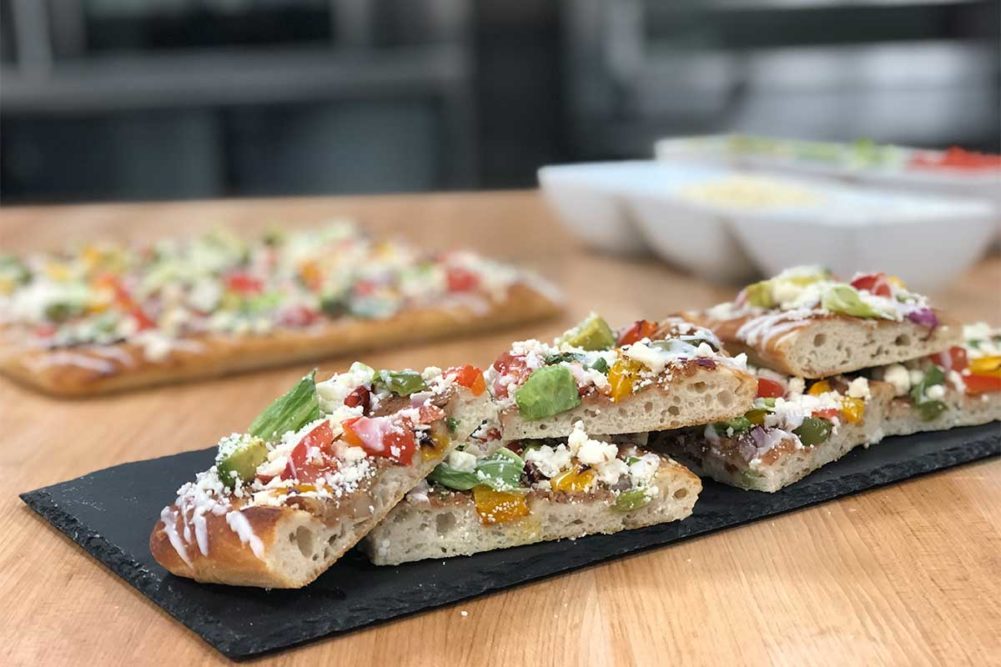There have been so many disruptions to ingredient supply chains that have affected the baker’s ability to rely on stand-by ingredients, whether it's minor ingredients like emulsifiers or major ones like flour. Even fats and oils have been hard to come by.
“COVID, the war in Ukraine and relentless supply chain delays and challenges have put a strain on all raw materials,” said Abigail Ceule, senior director, ingredient solutions, Corbion. “With oils, specifically, we’re seeing challenges with palm oil as well as alternative oils.”
Unfortunately, the oils most affected — palm and high-oleic — provide much of the functionality the baking industry lost when partially hydrogenated oils lost their GRAS status in 2015. As bakers struggle with lack of supply and high prices, they may be looking to pivot to other fats and oils as a temporary or permanent solution. But care must be taken to ensure finished product characteristics are still delivered, which will require reformulating and maybe an assist from additional ingredients.
As Ms. Ceule pointed out, the supply chain for raw materials is strained and that includes the oils that provide the basis of many fats and oils. A perfect storm of weakened supply chains, war and weather issues has created a challenging situation.
“Indonesia, which accounts for more than half of the global palm oil supply has banned exports at times to retain supply in country,” she said. “Large supplies of alternative oils, including soy and canola oil, are not always readily availability either after droughts hurt the most recent crops in Argentina, Brazil and Canada.”
Even fall crop conditions in the United States have been on a steady decline, she pointed out, due to the hot and dry weather this summer.
Together Ukraine and Russia account for about 75% of the world supply of high-oleic sunflower oil, said David Johnson, PhD, product director of food protection, Kalsec, a tap that had been turned off due to Ukraine’s ports being closed and sanctions against Russia. Deals between Russia, Turkey and Ukraine to reopen Ukraine’s ports have eased this burden some and provided some muted optimism.
“Just because we see grain leaving Ukraine doesn’t mean that suddenly the floodgates of supply will be open,” Dr. Johnson explained. “That situation is still tenuous, and it will take time for us to see the impact of that grain leaving Ukraine. Everything has to trickle down.”
On top of war affecting the supply of high-oleic sunflower oil, a bad crop year in 2021 has impacted high-oleic canola. While the soybean crop has been robust, not much of that has been devoted to growing high-oleic soy, so high-oleic products are in scarce supply.
“Having a robust high-oleic soybean supply is a two-year process, and the buyers didn’t commit to buying high-oleic soy to the processors and growers two years ago,” explained Richard Galloway, oils expert for U.S. Soy. “The soybean industry is responding, but the response time is limited because that’s the nature of agriculture.”
With so many shortages in supply, inflation has become a real issue for ingredients, and bakers are only able to pass these price hikes onto consumers for so long.
“Inflation is the ongoing situation that is causing raw material costs to continuously increase,” said Marie Shen, associate innovation scientist, Kemin Food Technologies. “Manufacturers have become very open to trying new and innovative measures to control costs from raw material sourcing to operations and beyond.”
Palm oils are also experiencing shortages and feeling the impact of inflation. But palm presents another issue for consumers and therefore bakers: sustainability.
“Slash-and-burn practices are used to deforest the peatland in tropical regions to grow palm trees, but through these practices, millions of tons of carbon dioxide are released and cause negative environmental impacts,” Ms. Shen said.
While sustainability can seem like a more long-term goal than the urgent supply chain challenges, consumers are becoming more aware of sustainability practices all the time, and it’s influencing their purchasing decisions.
“Consumers with this awareness will pick food items with sustainability label claims, pushing manufacturers to source raw materials sustainably if they want to win over this customer segment’s business,” Ms. Shen explained. “However, if manufacturers change their raw materials to win these customers over, price changes will be inevitable.”
Both high-oleic oils and palm provide the solid fats and shelf life necessary to make them easy to use in bakery applications without PHOs available. Commodity oils can provide a replacement, but they don’t have the shelf life stability without some assistance from other ingredients. Applications that rely heavily on fats for their finished product characteristics like laminated pastries, muffins and pound cakes are hit hard.
“High-oleic specialty oils are becoming difficult to source, which is causing bakers to find alternative oils that give comparable functionality,” said Jackie Steffey, senior customer innovation manager, AAK USA. “Applications being hit the hardest are ones that require liquid oils in the fat blends, such as cookies, cakes and breads.”
While the global supply chain situation may seem like the perfect storm, David Bezenyei, sales manager, Columbus Vegetable Oils, noted there is reason to be optimistic that things are getting better.
“Supply is looking to become more available, and lead times are becoming shorter,” he said, specifically about palm oil.
But while the situation is improving, Dr. Johnson noted that bakers should expect higher prices to continue into 2023.
This article is an excerpt from the October 2022 issue of Baking & Snack. To read the entire feature on Fats & Oils, click here.






